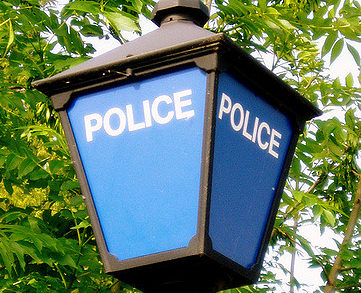2 June 2022
Crime. What’s That?
Policing problems.
By Lynda Goetz

The police have been in the news again recently. Not in a good way. A few weeks ago came the information that police officers were, in some cases, working from home (WFH); then we had the information that police forces “are aware of 67 recognised genders” and are allowing suspects to record themselves as ‘non-binary’ (which some, of course, might regard as entirely appropriate in the 21st century). Then a day or so later there were the rather damming statistics on response times to 999 calls and most recently, the revelation that the Met was offering joining bonuses to officers trained up by other forces. Finally, there are the many, many personal anecdotes relating to the difficulties faced in attempting to report crime at all.
Taken individually, it is perhaps possible to argue that none of these matters are too serious. After all, work/life balance is important and many people are WFH. Unfortunately, whilst online fraud may well be committed from home, there are plenty of crimes committed in real life (IRL) and these crimes require the police to be there IRL too. These days we are all aware, aren’t we, of the umpteen possible genders that anyone can now claim? (Although for most of us some elucidation on the matter might be helpful as the number does seem rather mind-boggling). Does it really matter if most police forces don’t answer a 999 call within 10 seconds if they answer it within 12 and as for ‘welcome bonuses’, aren’t these a ‘thing’ generally these days with an apparent shortage of workers in so many industries? Taken together, however, these items of news would suggest a rather serious problem with policing in this country.
Lisa Townend, the Police and Crime Commissioner for Surrey, described the approach of allowing criminals to self-identify as ‘ludicrous’ as she pointed out that this ‘corrupts data’ and puts the potential criminal before the victim. A Norfolk Constabulary spokesman however told The Telegraph: “Gender is recorded in four ways on our crime system: male, female, unknown and unspecified. However, we are aware there are a growing number of terms associated with gender and sexuality. The reference to ‘67 genders’ is not from any official documentation… it is merely a recognition of the variety of identifications people may use. Officers do not receive any formal training but are able to self-brief using material on the force’s intranet pages, if further information is required in the course of their duties.” (My italics). Perhaps, given that according to information also in the news this week the Civil Service apparently recognises 100 genders, we should be worried about the fact that 33 are being discriminated against!
Whilst for some, as stated above, this approach is appropriate and enlightened, it does, as Ms Townend pointed out, distort the data. Violent sexual crimes are more likely to be committed by males. To ignore this fact or to obscure it by bringing gender into the data-recording rather than sex is quite obviously going to make patterns more difficult to spot and result, as Ms Townend stated, in effectively policing ‘by anecdote’. Admittedly, the police face a difficult task in steering a reasonable course between being aware of modern sensibilities and avoiding the ‘macho’ culture for which they have been criticised, whilst not succumbing completely to ‘wokery’. Many would argue that, perhaps depending on the force in question, they are failing on both counts. The Miller v College of Policing case verdict slapped down Humberside Police for its over-zealous approach to the recording of ‘non-crime hate incidents’, but rejected a wider challenge to the College of Police Guidance itself. Andy Marsh, CEO of the College of Policing since September last year, has said separately that macho behaviour in stations and toxic behaviour passed off as ‘banter’ needs to end.
As far as the public is concerned, what most people would like is for the police to get back to what should be their main purpose, namely, to deal with crime. Being a police officer may well be, as Andy Marsh says, a vocation and a profession, and our police force one of the most scrutinised in the world with an emphasis on ‘a new culture’, but if it is unable to achieve its main objective then all the ethics and fine words are of very little use.
In this regard, the news about response times is at first sight a little concerning. Only 11 constabularies (out of 44) were within the target response time. Part of the problem is apparently the public’s lack of confidence in the non-emergency 101 number, leading to an inappropriate use of 999 and thus ‘overwhelming’ the system, but another issue, according to National Police Chiefs Council (NPCC), Alan Todd, is static or falling police budgets. Overall, however, 71% of 999 calls were answered within 10 seconds. So, is this really a problem? As with most statistics, this question is not that easy to answer. It would appear to depend on whereabouts in the country you live and whether or not your call is a matter of life and death. Clearly, if it is, then seconds can make a difference. This is the first time that these particular statistics have been compiled. More important perhaps are response times once your call has been answered. According to a BBC report in 2019, police response times in Greater Manchester had almost doubled in seven years. This was put down to an increase in recorded crime and a reduction in officers.
Rather strangely, at around the same time there were numerous reports of a failure of police to report crimes at all. Only eighteen months after the March 2019 report, the BBC reported that Greater Manchester Police failed to record about 80,000 crimes a year and closed cases without proper investigation. Anecdotal evidence dating back many years now suggests that police are failing to record a large number of what they regard as minor or unsolvable crimes such as burglaries or thefts from cars. It is almost guaranteed to be not worth reporting any theft from an outbuilding as you are likely simply to be told to ‘claim on your insurance’. Add to all this the serious cases of sexual assault committed by serving officers which have come to light since the Sarah Everard case earlier this year and one is led to conclude that public confidence in the police is currently very low.
Clearly the reduction in police numbers is a factor in the current public perception of the ability of the police to deal with crime efficiently, but are forces justified in dealing with this lack of manpower by poaching from other forces? This approach would appear to highlight the lack of a moral and ethical approach to policing at a time when the police are attempting to claim a ‘new culture’. Nine police officers in neighbouring forces have written to Sir Stephen House, the acting Met commissioner, protesting the offer of £5k ‘golden hellos’, warning that this will have a “hugely disproportionate and negative effect”. All police forces are currently aiming to fulfil the Governments ‘uplift’ target of 20,000 extra police officers by March 2023.
Our police force may appear exemplary when compared with others around the world (e.g. the French police were clearly out of order in their dealings with Liverpool football fans in Paris last weekend), but as with GPs, the public would probably like to see more of them. They would also like to feel that rather than focusing on non-crime hate incidents or diversity or those doing a few miles over the speed limit on an open road they were focusing on solving crimes.
According to the Crime Survey for England and Wales (CSEW), crime has continued to fall over the last 20 years. There has been a long-term decline in the volume of crime, with fewer crimes today in total than in 1995, when crime reached its peak. However, as pointed out on Tony Blair’s Institute for Global change website, there are a number of caveats to this statistic, the most important one being that for crimes reported by the police, figures have been increasing since 2014. If, as appears to be the case, hundreds of thousands of crimes are not even being reported by the police, then the figures for actual crime are certainly increasing, not decreasing. The arguments and statistics are interesting, but it is also abundantly clear that trust in the police is currently at a low point and that the police have a lot to do change the public perception of how well they are doing their job. At the moment almost any report would almost certainly contain words such as ‘lessons to be learnt’ and ‘could do better’.


